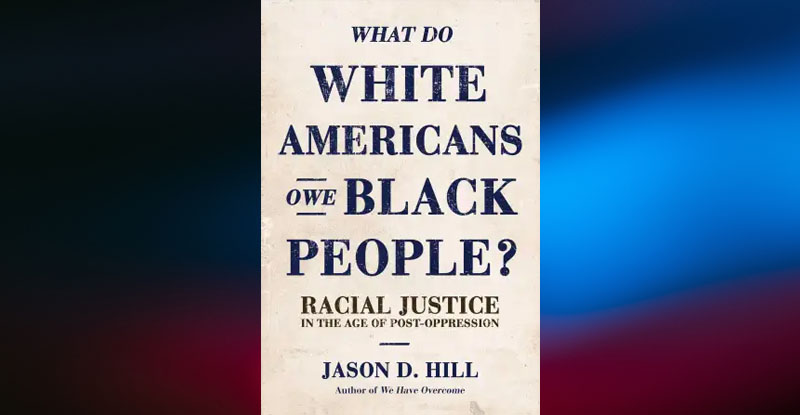Review by Brent Ramsey
Jason D. Hill is a professor of philosophy and the author of five books: These include, What Do White Americans Owe Black People: Racial Justice in the Age of Post-Oppression, and the bestselling, We Have Overcome: An Immigrant’s Letter to the American People.
Other books include: Becoming a Cosmopolitan: What It Means to Be a Human Being in the New Millennium, Civil Disobedience and the Politics of Identity: When We Should Not Get Along, and Beyond Blood Identities: Post-humanity in the Twenty First Century.
He holds a Ph.D. in philosophy and has been a professional writer and book author for over thirty years. He is a specialist in ethics, political philosophy, moral psychology, American politics, and foreign policy.
He has been published in major magazines including The Federalist, The American Mind, The American Thinker, Commentary Magazine, Spiked Magazine, and Salon. He is also a contributor to The Hill. His poetry has been published in several journals.
In “What Do White Americans Owe Black People: Racial Justice in the Age of Post-Oppression” there are many provocative themes.
Part history and much philosophy, this book is a must read for all who seek the truth and a way forward in this race charged world. Slavery is explained in the context of when it occurred. Dr. Hill explains the nature of the “indigene” or the African of the days when the very old practice of slavery, which has existed from time immemorial was practiced by both Africans and Europeans for the purpose of producing a labor force for the new world.
In this context, slavery is exposed as primarily an economic phenomenon and not a racist one as the primary purveyors of the practice on the continent of Africa were Africans themselves.
This is not a denial of racism per se but a useful and truthful account of how Africans got to America and why. It really had nothing to do with the color of their skin. It was driven by the economics of the day and the nature of the indigene themselves, which were undeniably primitive by Western standards.
The book continues on to explore the three Foundings: the Declaration and Constitution, the Civil War, and the Civil Rights Act of 1964, which at their conclusion delivered equality regardless of race, color or creed to America at last. Dr. Hill makes a compelling case that in effect racism ended in the US with the passage of the Civil Rights Act of 1964.
He says, “The 1964 Act granted blacks full inclusion into the domain of the ethical by giving them identical status it had bestowed upon whites: they were now a protected class—protected from the arbitrary encroachments of others against the unassailability of their inalienable rights.” Thus, we have since lived in an age of post-oppression for minorities in this country. Moreover, the subsequent institutionalizing of Affirmative Action has acted for more than 50 years as reparations for past sins. Dr. Hill asserts that the reparations debt has been paid.
Dr. Hill lays out in extensive detail the philosophy of the thinking man, a post racial being whose goals and behavior center on innate shared humanity, ethical behavior, personal sovereignty, autonomy, self-reliance, self-respect, values, beliefs, and character that define the person…not the color of one’s skin.
In its most compelling parts, and convincingly done, Dr. Hill advocates for the abolishment of race as something that is no longer relevant today, relevant to a thinking human being.
Above all, Dr. Hill advocates for a moral decision about race. He says, “Transracial moral cosmopolitans are individuals who, against their origins, choose a nonracial identity. They have psychically transcended the primordial muck of race. They recognize that human identity is made and lived; it is not a “natural” feature of the world.”
Dr. Hill’s analysis is bold, perceptive, prescriptive and brilliant. It is the way forward out of a morass of falsehoods, chicanery, and confusion regarding racial justice in America.








Leave a Comment